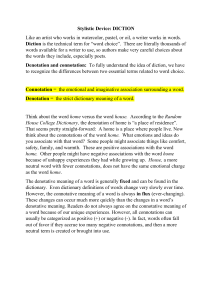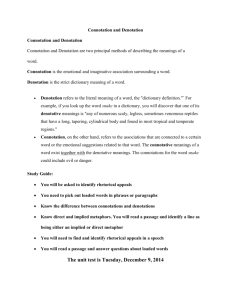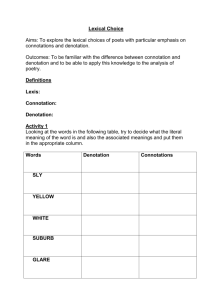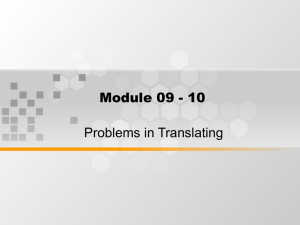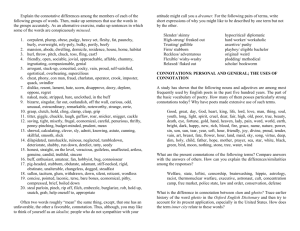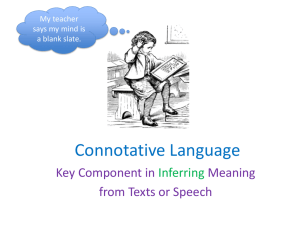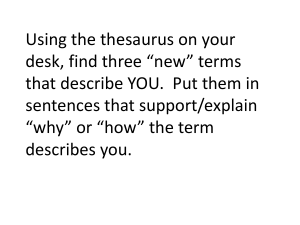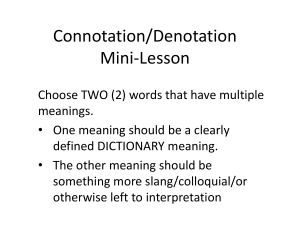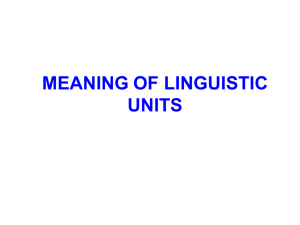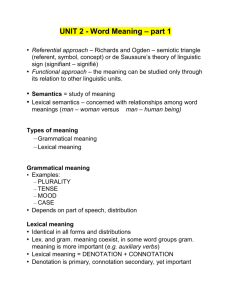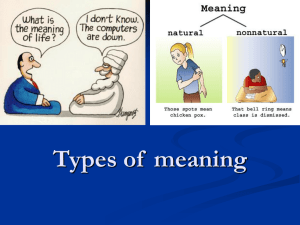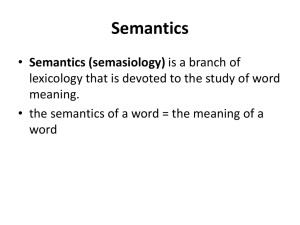Connotation & Denotation Worksheet: Positive/Negative Words
advertisement
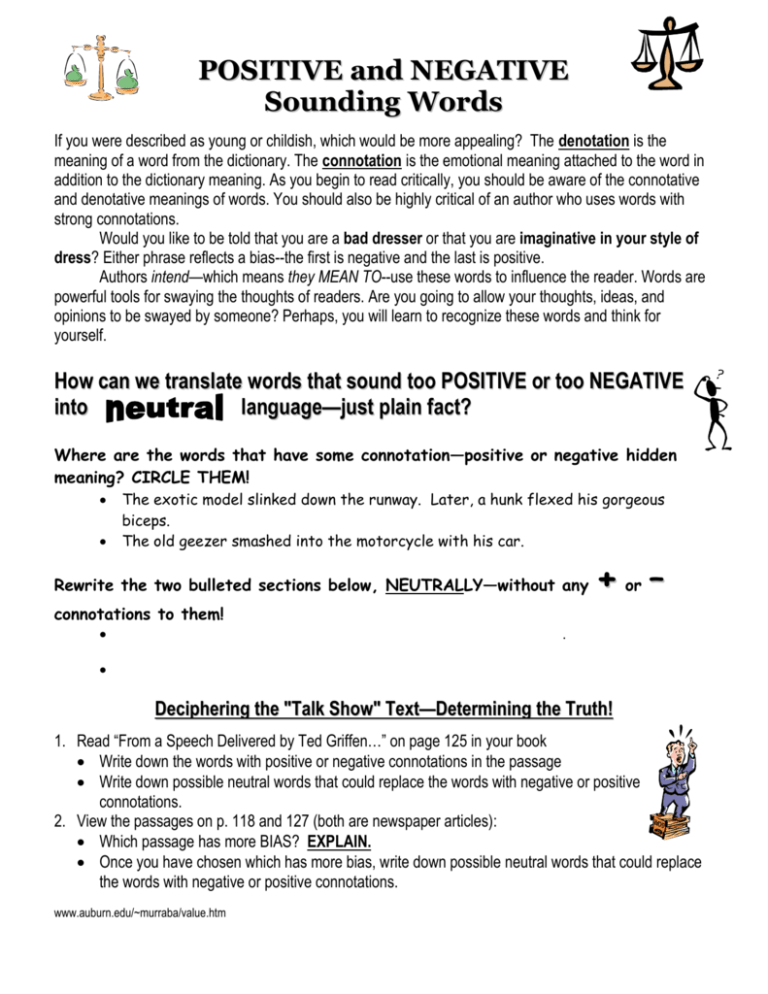
POSITIVE and NEGATIVE Sounding Words If you were described as young or childish, which would be more appealing? The denotation is the meaning of a word from the dictionary. The connotation is the emotional meaning attached to the word in addition to the dictionary meaning. As you begin to read critically, you should be aware of the connotative and denotative meanings of words. You should also be highly critical of an author who uses words with strong connotations. Would you like to be told that you are a bad dresser or that you are imaginative in your style of dress? Either phrase reflects a bias--the first is negative and the last is positive. Authors intend—which means they MEAN TO--use these words to influence the reader. Words are powerful tools for swaying the thoughts of readers. Are you going to allow your thoughts, ideas, and opinions to be swayed by someone? Perhaps, you will learn to recognize these words and think for yourself. How can we translate words that sound too POSITIVE or too NEGATIVE into language—just plain fact? Where are the words that have some connotation—positive or negative hidden meaning? CIRCLE THEM! The exotic model slinked down the runway. Later, a hunk flexed his gorgeous biceps. The old geezer smashed into the motorcycle with his car. Rewrite the two bulleted sections below, NEUTRALLY—without any connotations to them! + or – . Deciphering the "Talk Show" Text—Determining the Truth! 1. Read “From a Speech Delivered by Ted Griffen…” on page 125 in your book Write down the words with positive or negative connotations in the passage Write down possible neutral words that could replace the words with negative or positive connotations. 2. View the passages on p. 118 and 127 (both are newspaper articles): Which passage has more BIAS? EXPLAIN. Once you have chosen which has more bias, write down possible neutral words that could replace the words with negative or positive connotations. www.auburn.edu/~murraba/value.htm Denotation & Connotation If you were described as young or childish, which would be more appealing? The denotation is the meaning of a word from the dictionary. The connotation is the emotional meaning attached to the word in addition to the dictionary meaning. As you begin to read critically, you should be aware of the connotative and denotative meanings of words. You should also be highly critical of an author who uses words with strong connotations. How can we determine the difference? Think about the word loser. What is the denotative meaning? What is the connotative meaning? Obviously, the denotative meaning is easy to find in the dictionary. However, the reader brings various connotative meanings based on the experiences of the particular reader. Some people may think of the word loser as someone who isn’t “cool enough” in one person’s eyes. Someone called a loser may feel bad in many ways. However, the dictionary defines loser as: One that fails to win: the losers of the game. One who takes loss in a specified way: a graceful loser; a poor loser. Using denotative and connotative words, describe your last or next class (do not use any teachers’ or students’ names!) 1. Write two brief statements about your last or next class (approximately 1 paragraph each). 2. One should be exactly what happened in class--using denotations. 3. The second should add in words that make students in the next class EITHER excited to be there or should make students dread being there--using connotations. www.auburn.edu/~murraba/value.htm
